© 2025 MJH Life Sciences™ , Patient Care Online – Primary Care News and Clinical Resources. All rights reserved.
Surprising New Treatment Applications: A Quick Quiz
Test your knowledge of the peculiar applications of some common treatments with this 10-question quiz.
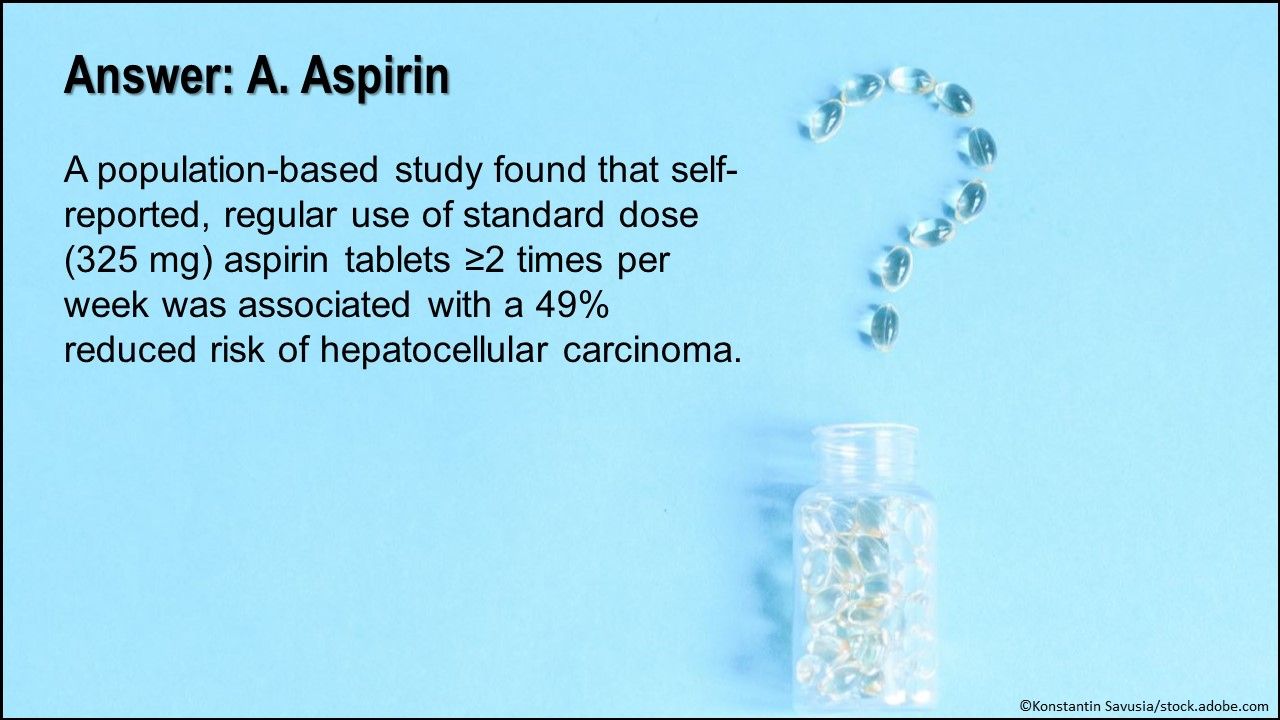
Answer: A. Aspirin. A population-based study found that self-reported, regular use of standard dose (325 mg) aspirin tablets ≥2 times per week was associated with a 49% reduced risk of hepatocellular carcinoma.
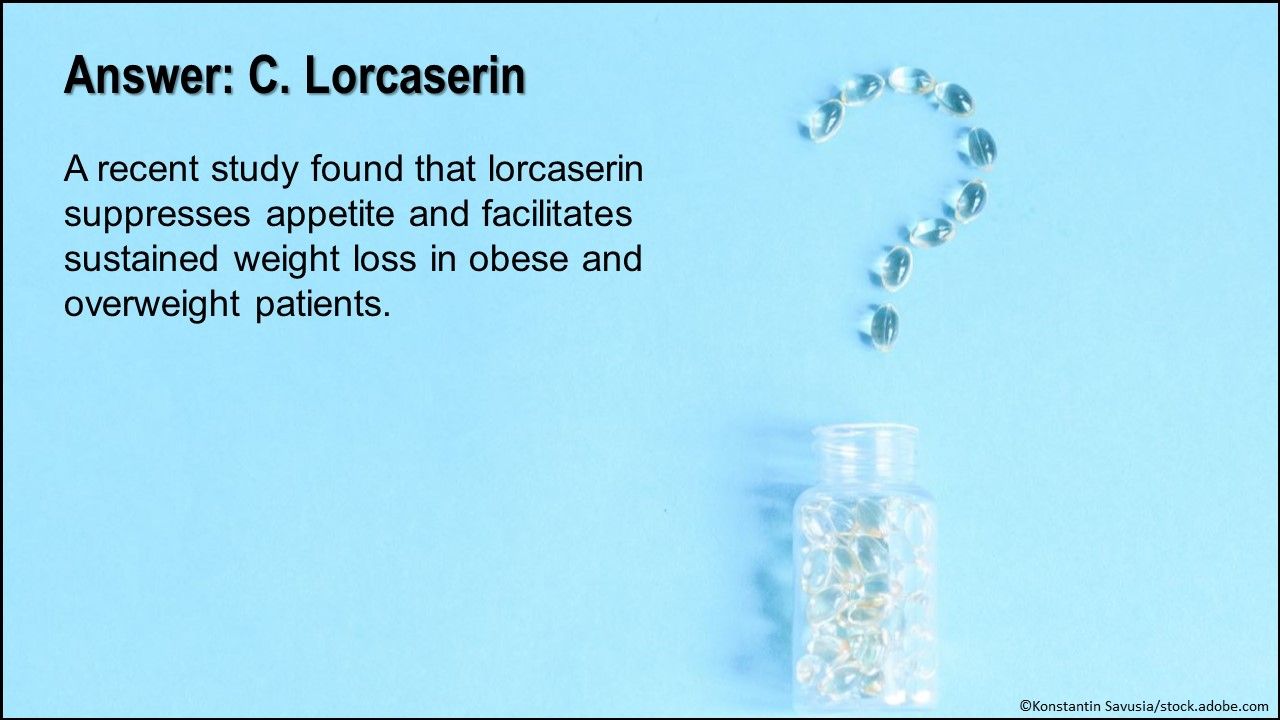
Answer: C. Lorcaserin. A recent randomized, double-blind, placebo-controlled study found that lorcaserin suppresses appetite and facilitates sustained weight loss in obese and overweight patients.
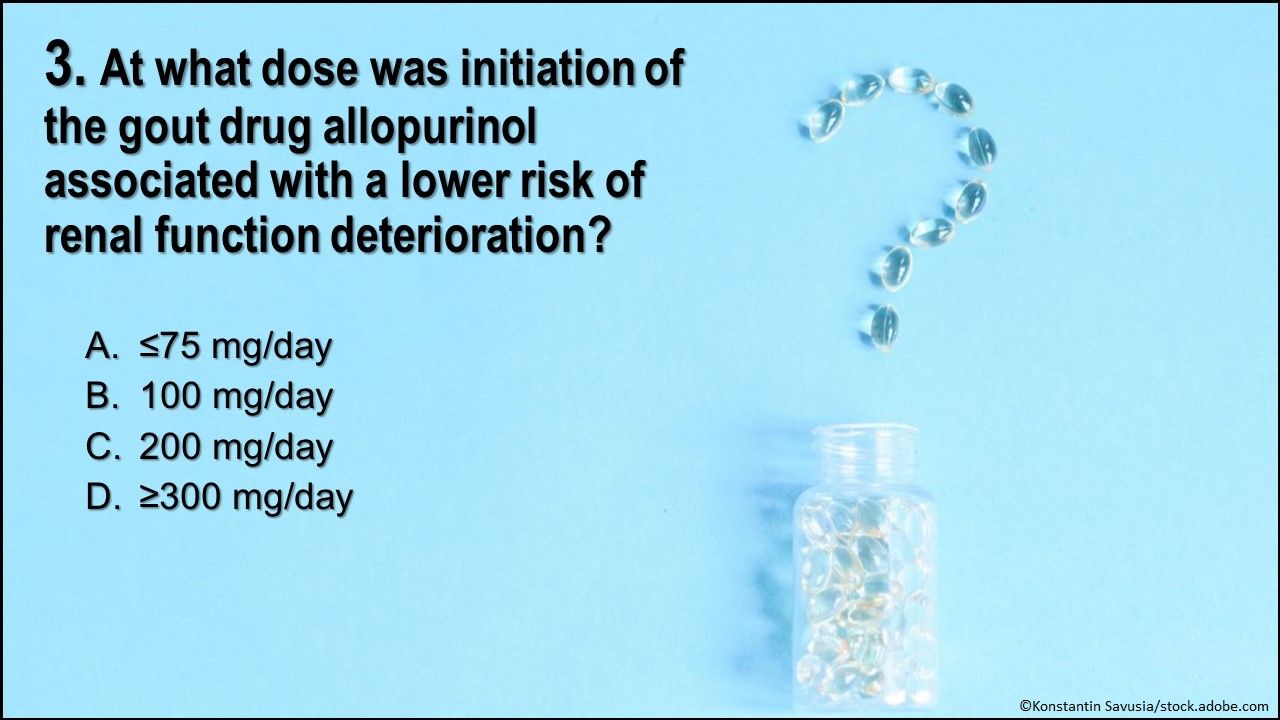
Question 3. At what dose was initiation of the gout drug allopurinol associated with a lower risk of renal function deterioration?
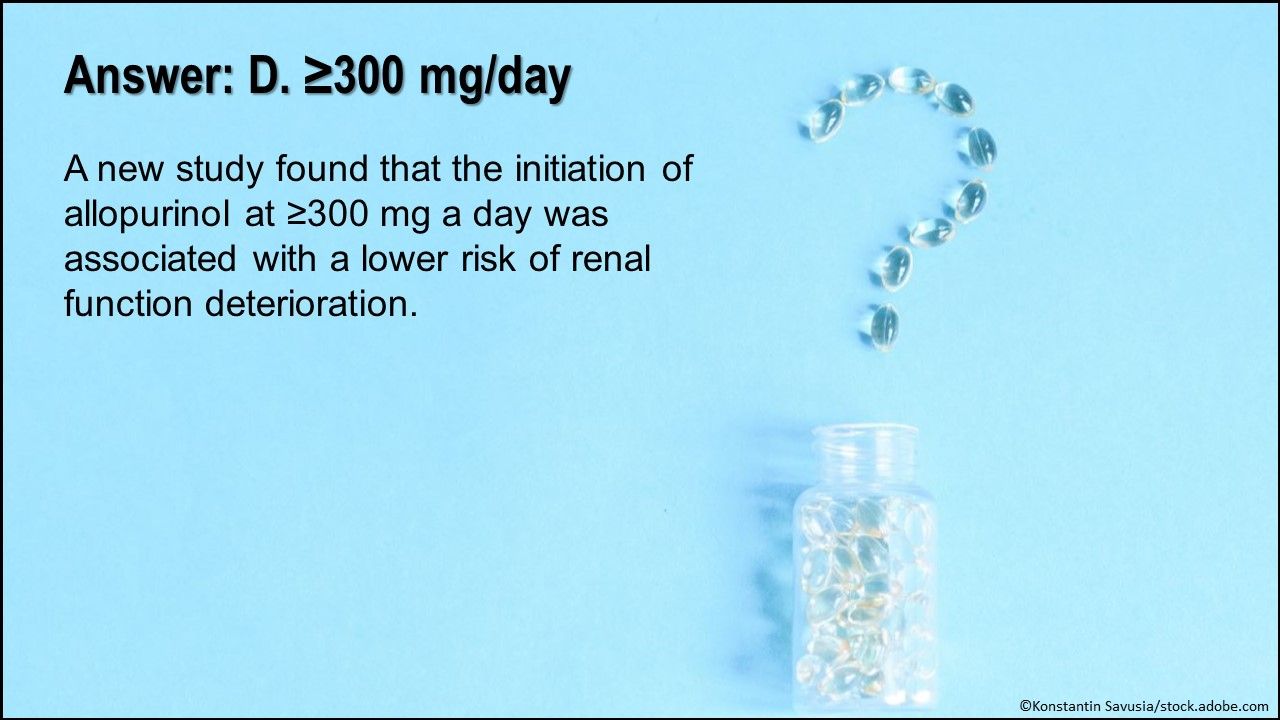
Answer: D. ≥300 mg/day. A new study found that the initiation of allopurinol at ≥300 mg a day was associated with a lower risk of renal function deterioration.
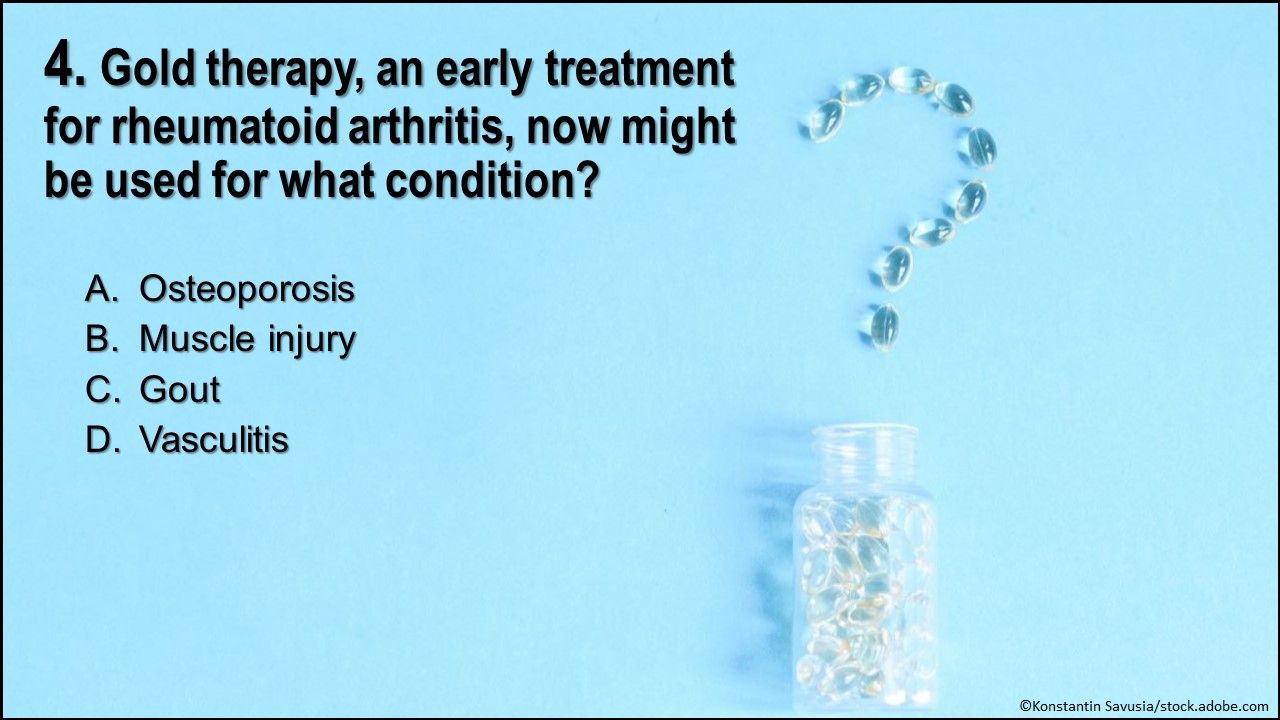
Question 4. Gold therapy, an early treatment for rheumatoid arthritis, now might be used for what condition?
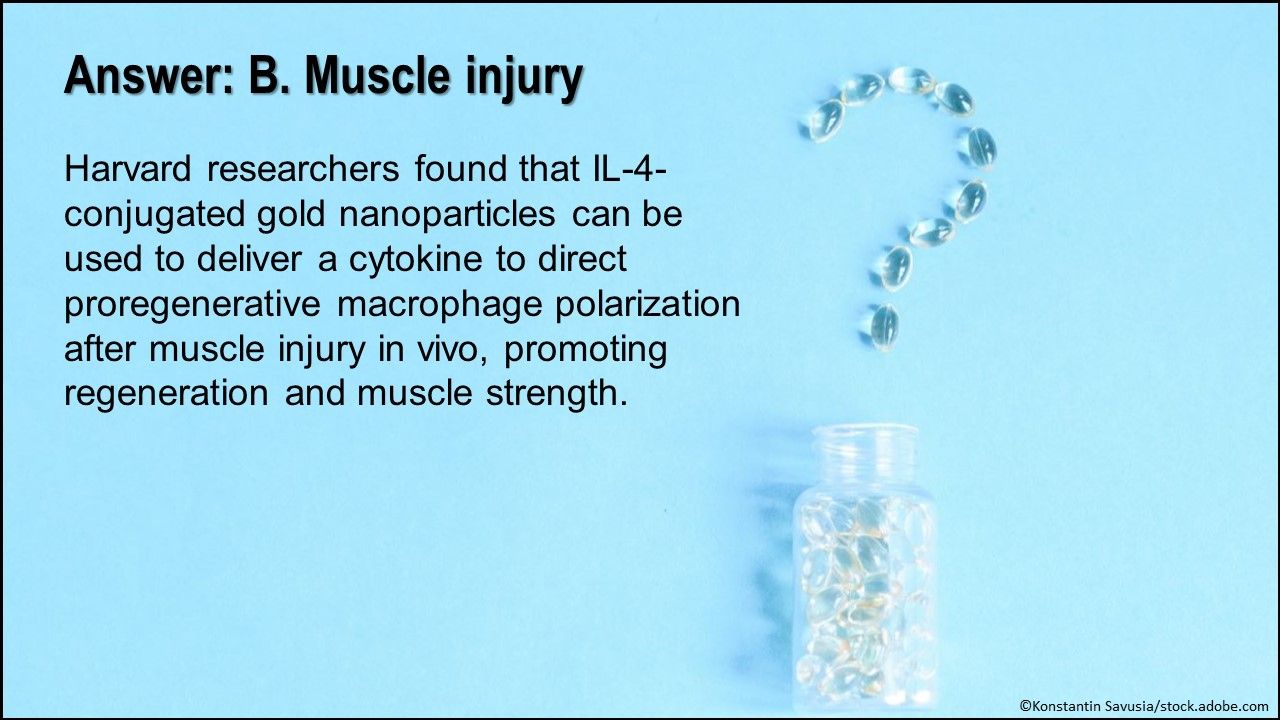
Answer: B. Muscle injury. A recent study found that IL-4-conjugated gold nanoparticles can be used to deliver a cytokine to direct proregenerative macrophage polarization after muscle injury in vivo, promoting regeneration and muscle strength.
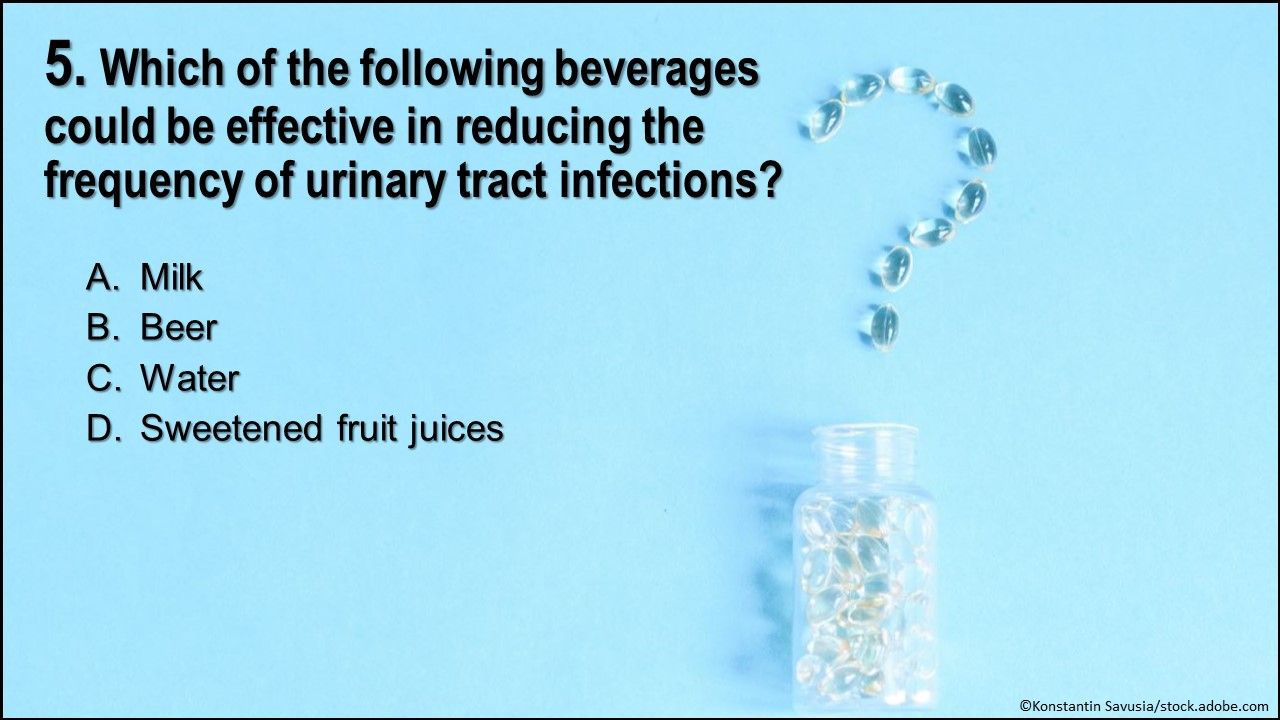
Question 5. Which of the above beverages could be effective in reducing the frequency of urinary tract infections?
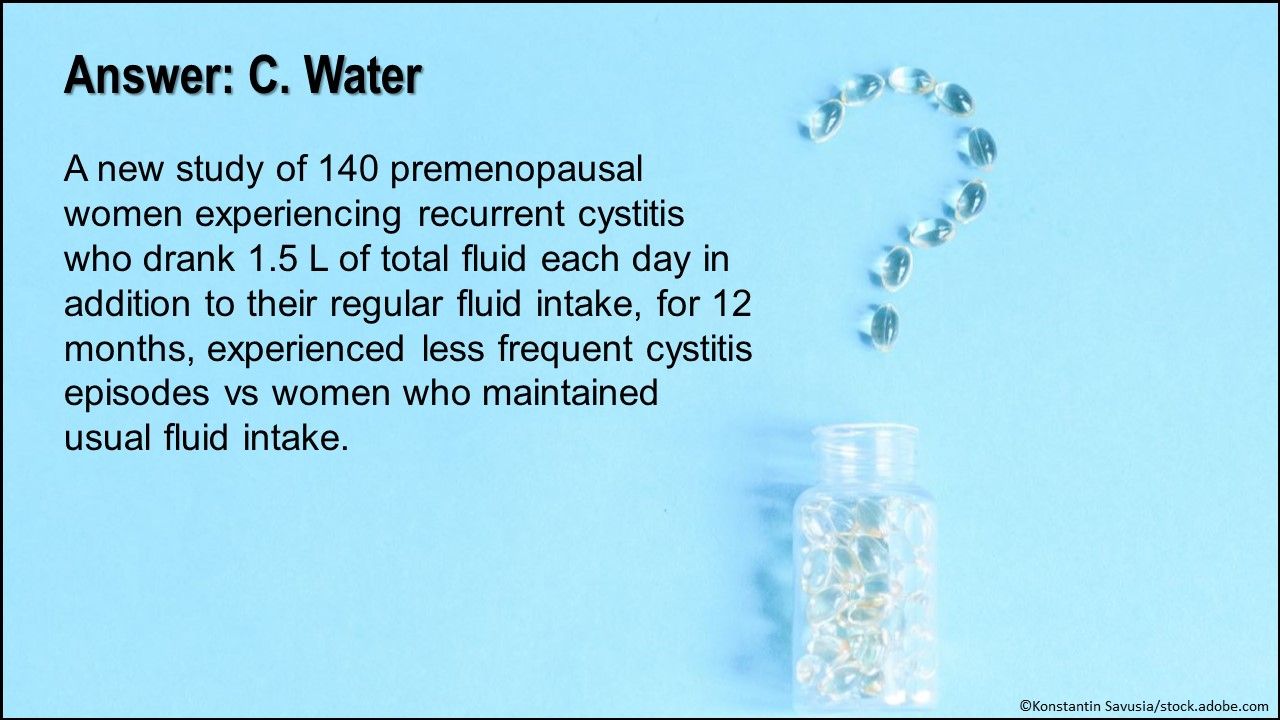
Answer: C. Water. A new study of 140 premenopausal women experiencing recurrent cystitis who drank 1.5 L of total fluid each day in addition to their regular fluid intake, for 12 months, experienced less frequent cystitis episodes vs women who maintained usual fluid intake.
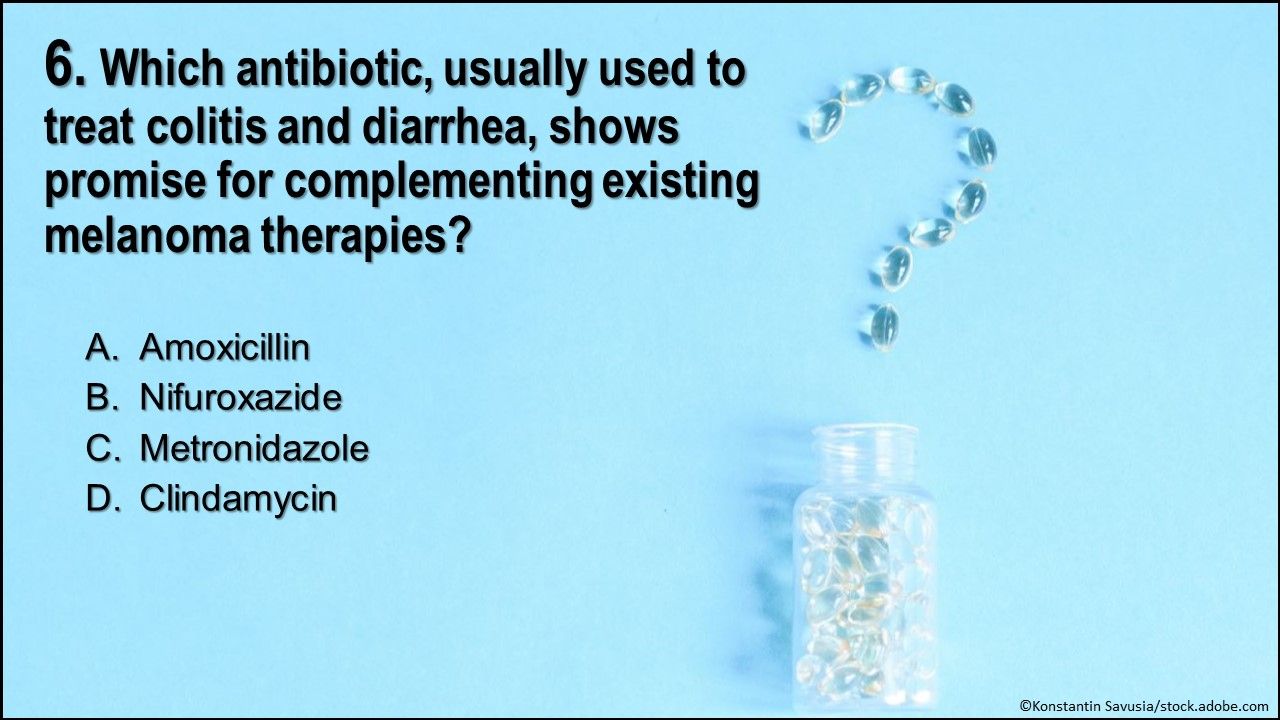
Question 6. Which antibiotic, usually used to treat colitis and diarrhea, shows promise for complementing existing melanoma therapies?
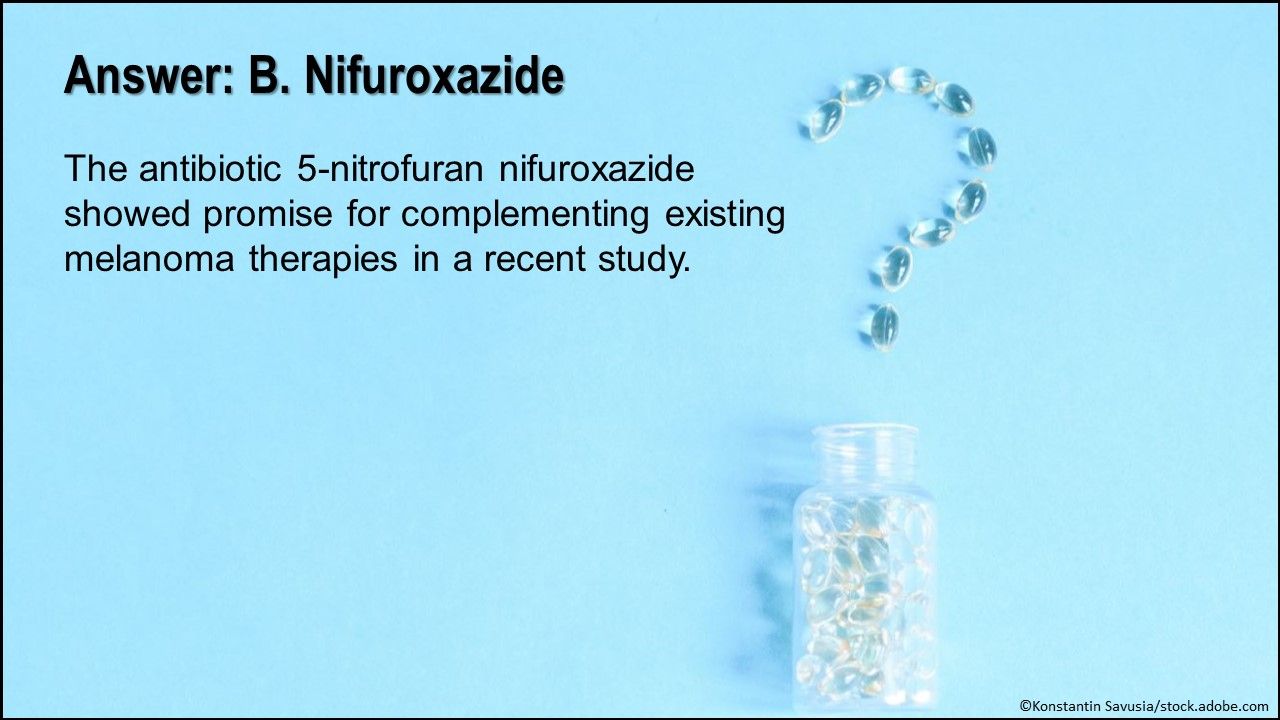
Answer: B. Nifuroxazide. The antibiotic 5-nitrofuran nifuroxazide showed promise for complementing existing melanoma therapies in a recent study.
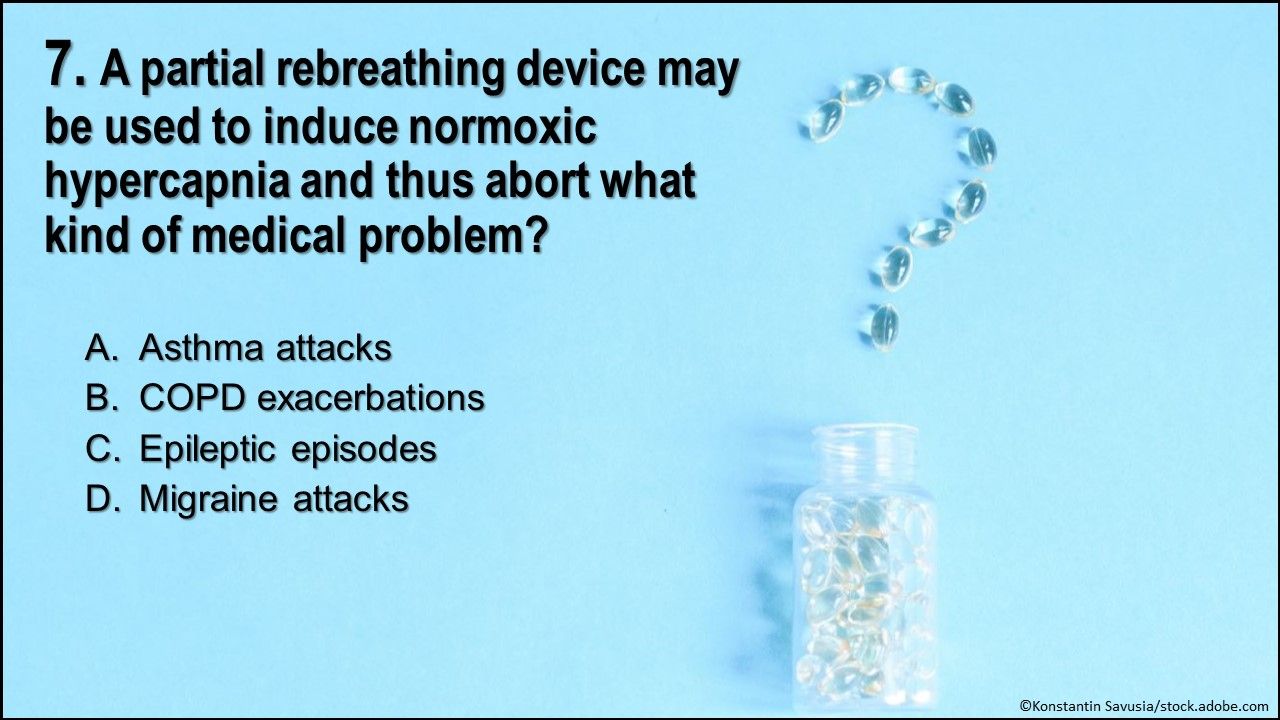
Question 7. A partial rebreathing device may be used to induce normoxic hypercapnia and thus abort what kind of medical problem?
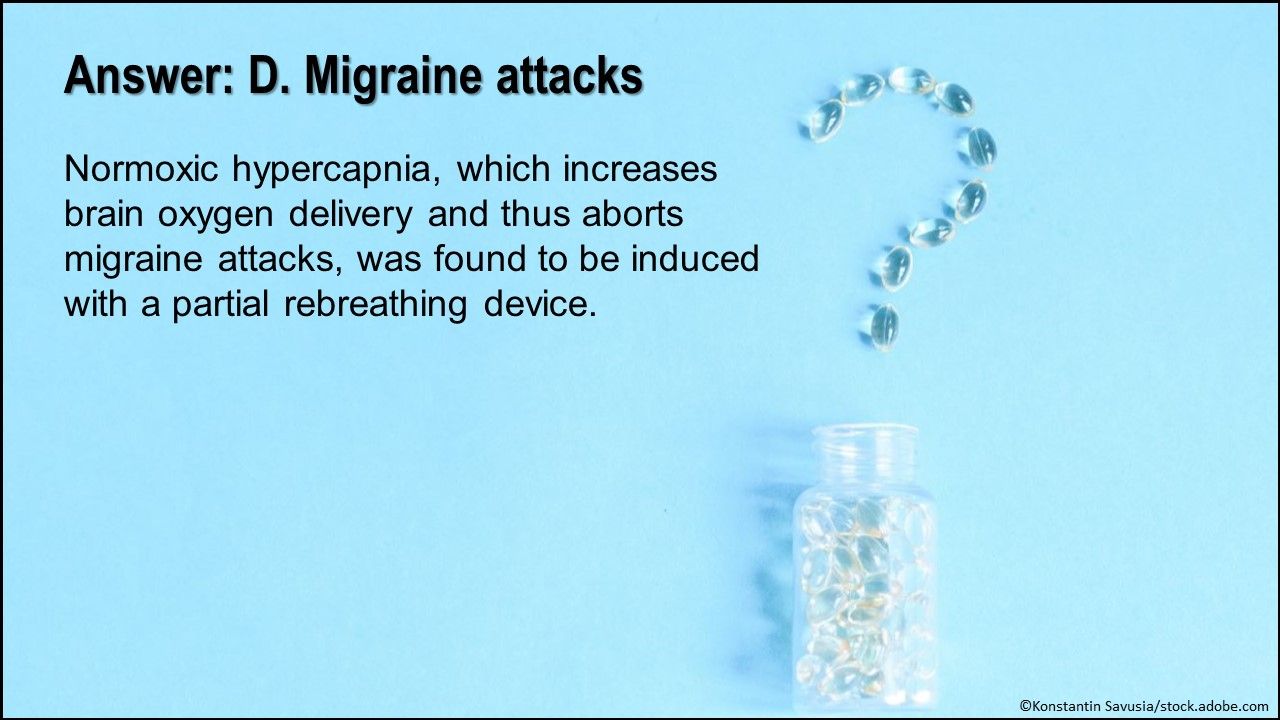
Answer: D. Migraine attacks. Researchers found that normoxic hypercapnia, which increases brain oxygen delivery and thus aborts migraine attacks, can be induced with a partial rebreathing device.
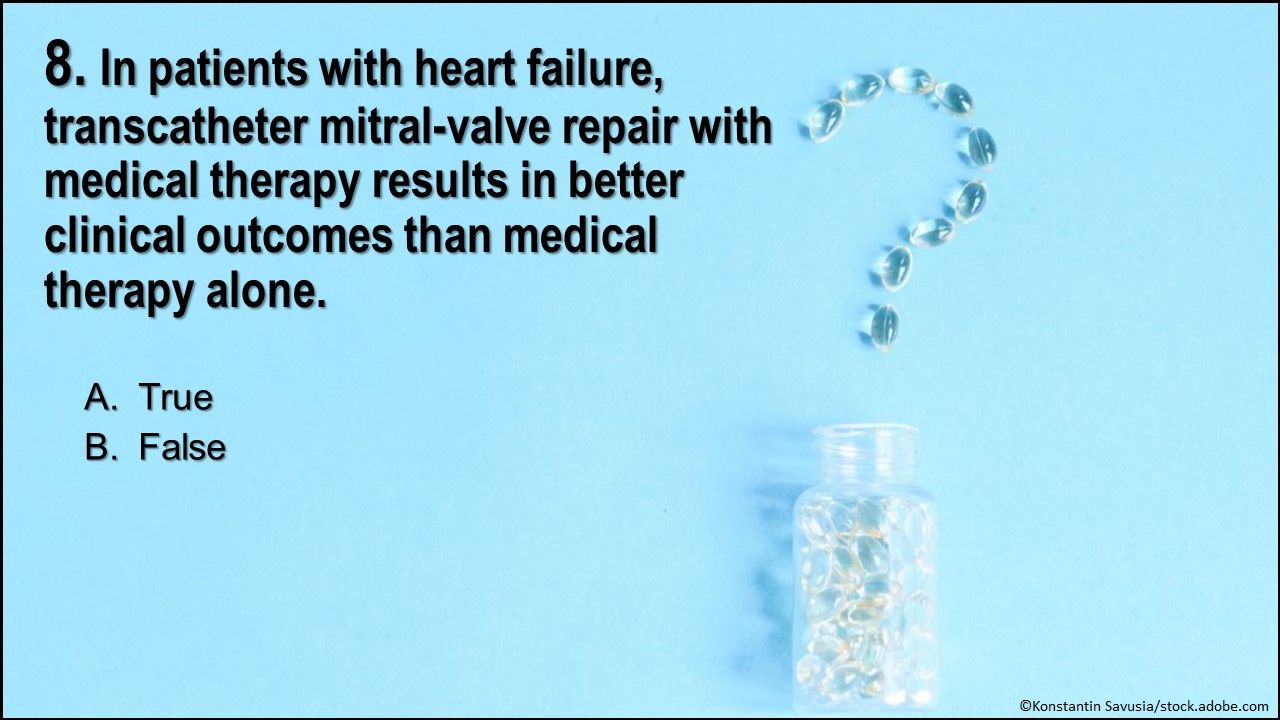
Question 8. True or false? In patients with heart failure, transcatheter mitral-valve repair with medical therapy results in better clinical outcomes than medical therapy alone.
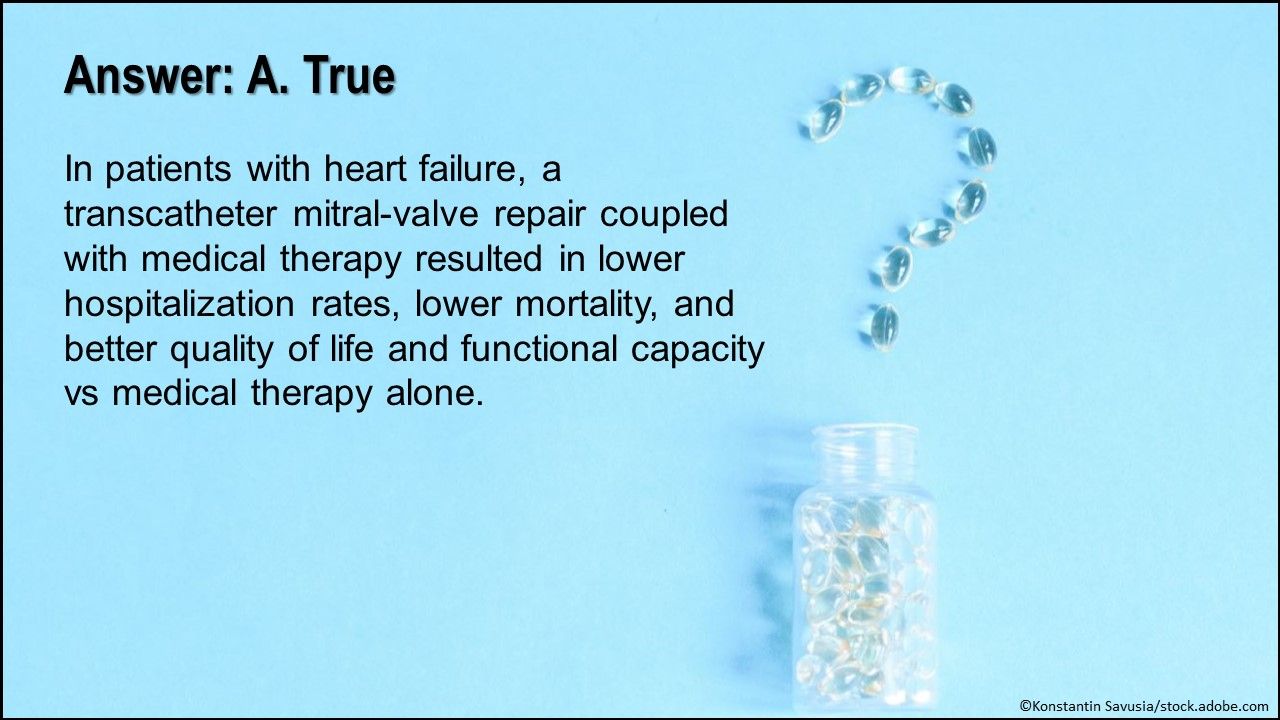
Answer: A. True. In patients with heart failure, a transcatheter mitral-valve repair coupled with medical therapy resulted in lower hospitalization rates, lower mortality, and better quality of life and functional capacity vs medical therapy alone.
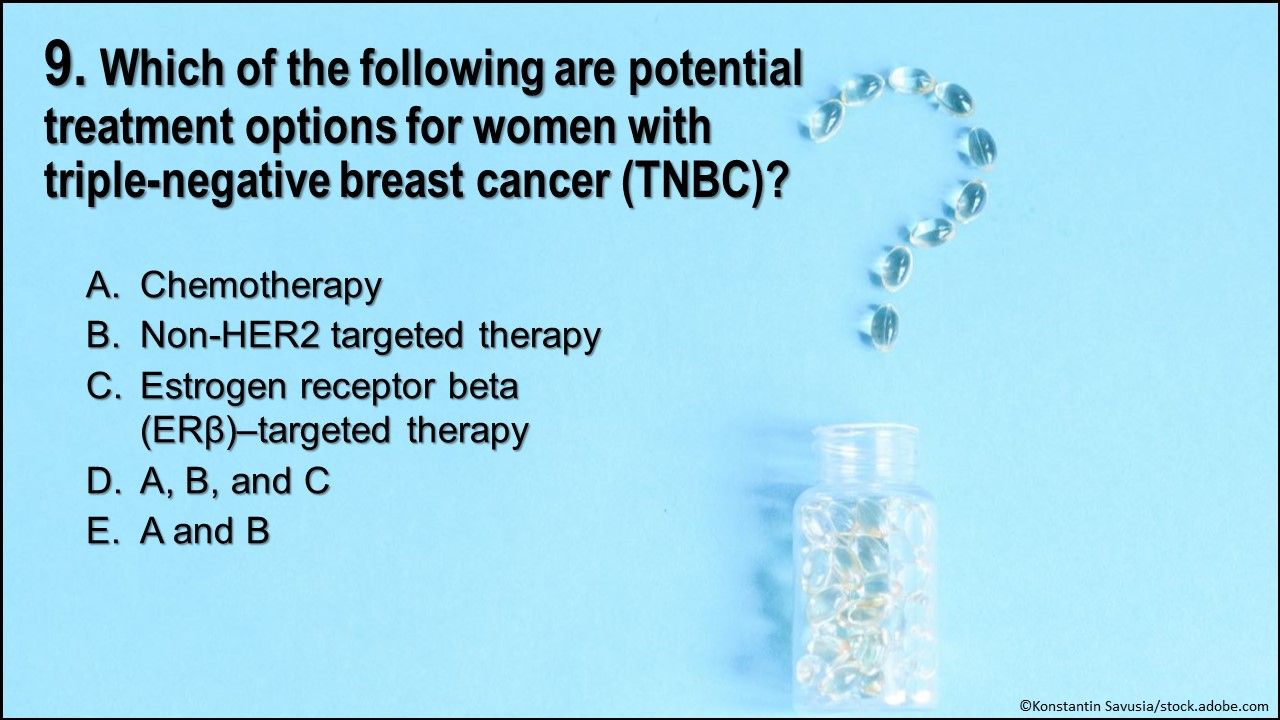
Question 9. Which of the above are potential treatment options for women with triple-negative breast cancer (TNBC)?
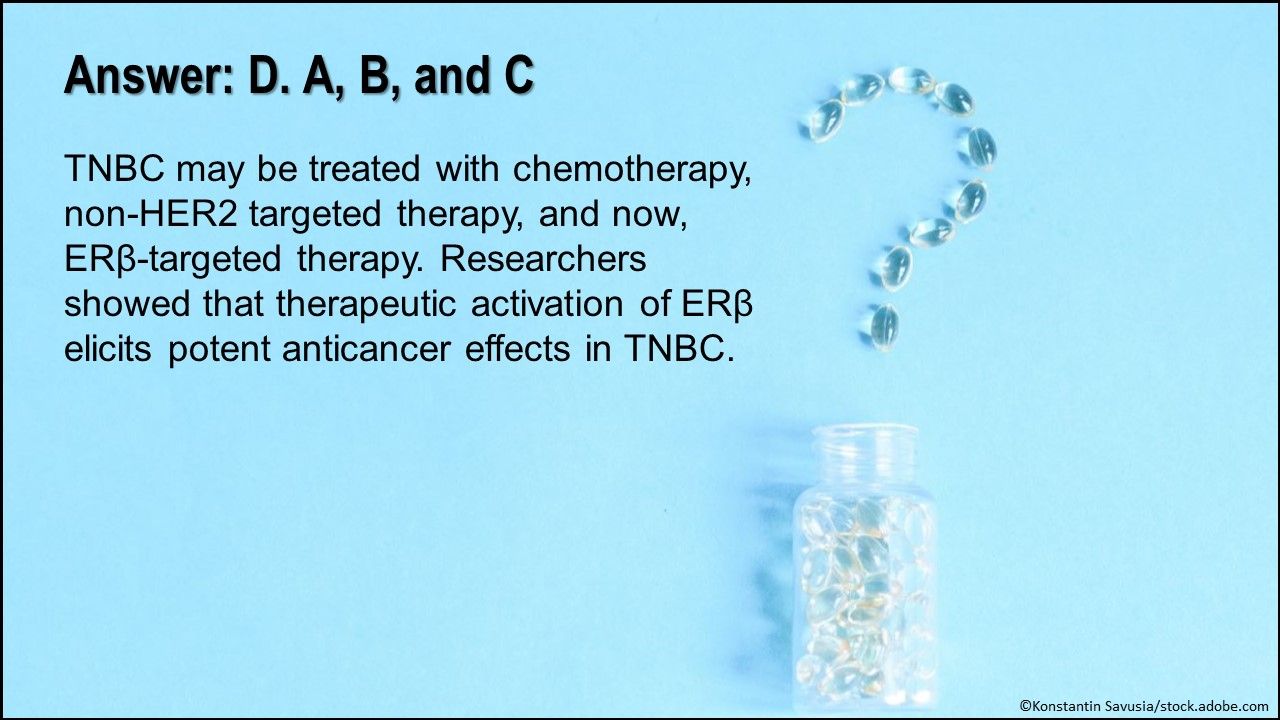
Answer: D. A, B, and C. TNBC may be treated with chemotherapy, non-HER2 targeted therapy, and now, ERβ-targeted therapy. Researchers of a recent study showed that therapeutic activation of ERβ elicits potent anticancer effects in TNBC.
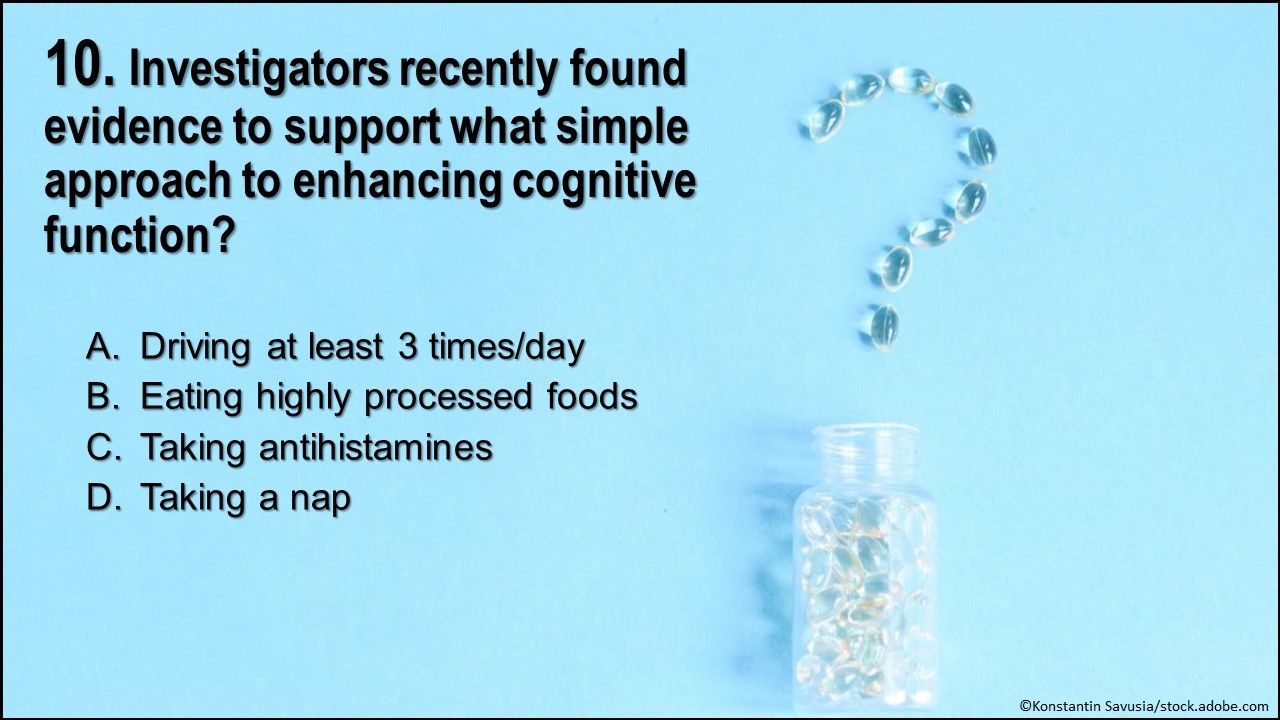
Question 10. Investigators recently found evidence to support what simple approach to enhancing cognitive function?
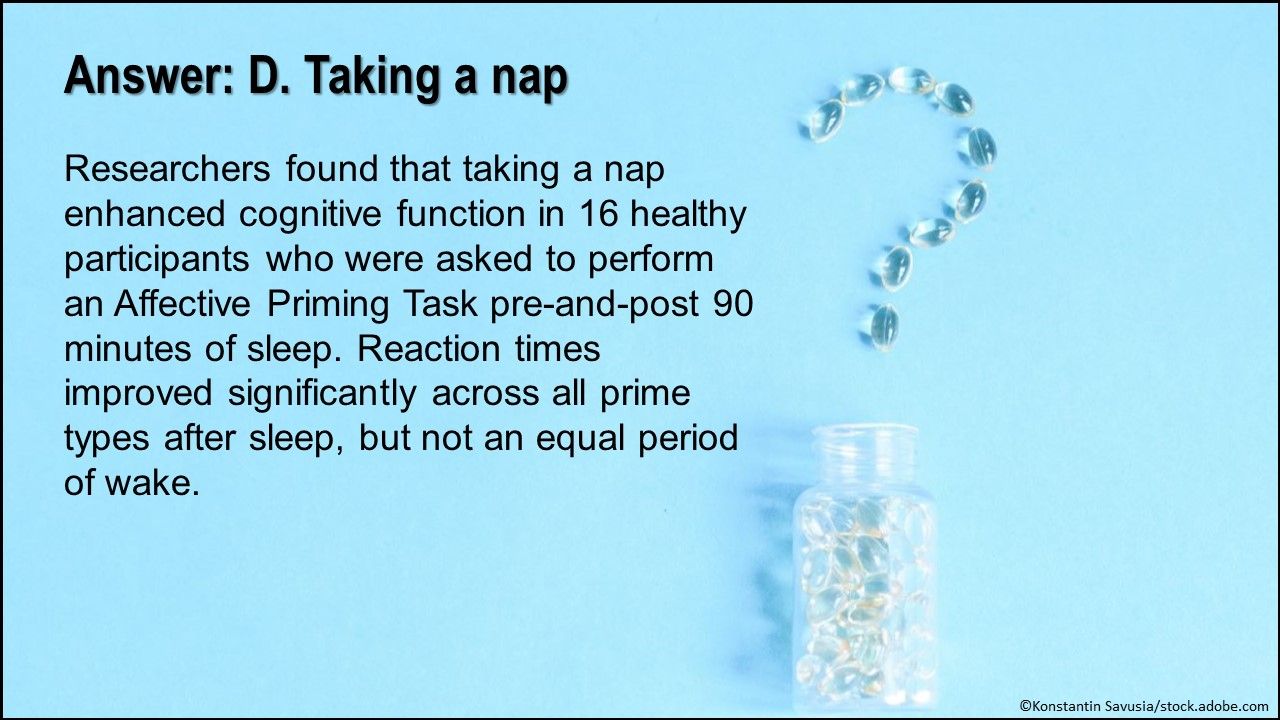
Answer: D. Taking a nap. Researchers found that taking a nap enhanced cognitive function in 16 healthy participants who were asked to perform an Affective Priming Task pre-and-post 90 minutes of sleep. Reaction times improved significantly across all prime types after sleep, but not an equal period of wake.
For more information on all questions and answers, please visit 10 Common Treatments, 10 Not-So-Common Applications.
Findings from several recent studies shed light on common treatments that are being applied in uncommon and perhaps surprising ways, including a new primary prevention option for liver cancer and a weight loss drug that lowers the risk of diabetes.Take the brief quiz below to test your knowledge of the latest in new treatment applications.



